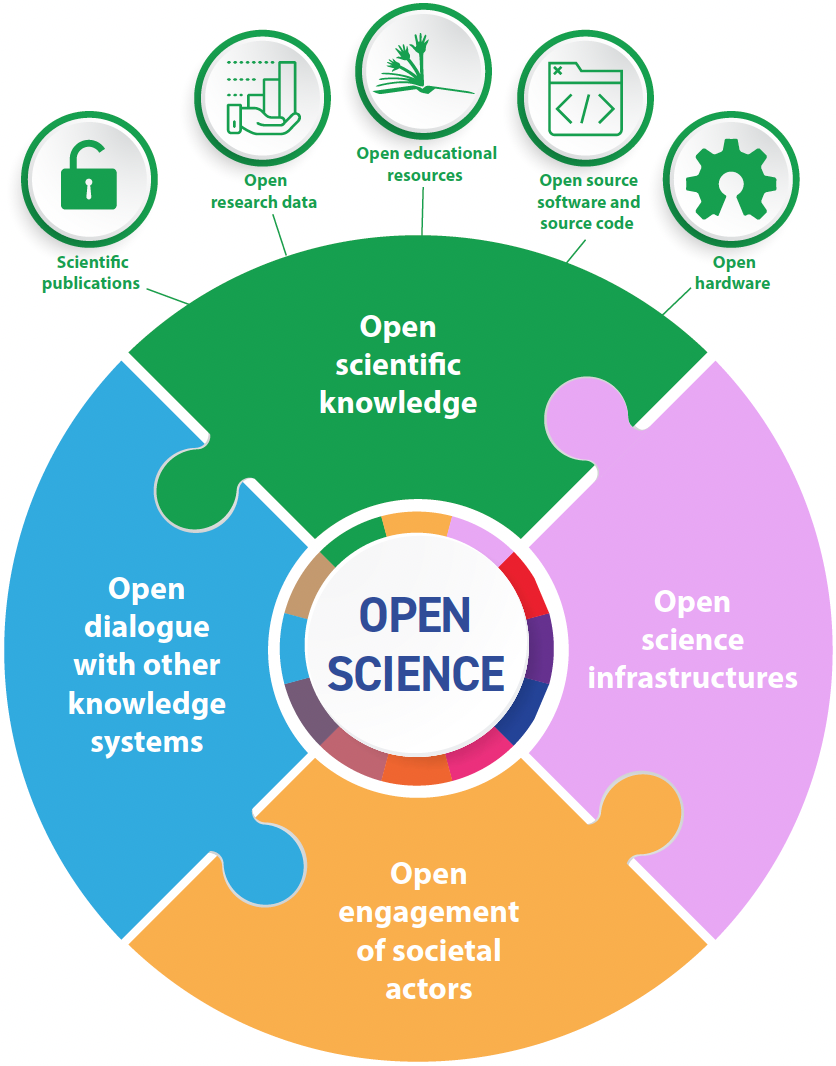There are too few nonprofit organizations like CC fighting for the commons – support our vital leadership with an end of year contribution. Donate today!
UNESCO Recommendation on Open Science Ratified
Copyright, Open Access, Open Data, Open Education, Open Science
Graphic on page 11. UNESCO Recommendation on Open Science. CC BY IGO 3.0
Creative Commons (CC) applauds the unanimous ratification of the UNESCO Recommendation on Open Science at UNESCO’s 41st General Conference. This landmark document is a major step forward towards creating a world in which better sharing of science is open and inclusive by design.
CC is honored to have been part of the global community that drafted, reviewed and revised the Recommendation. We firmly believe open access to knowledge is a necessary, though not sufficient, condition to solving big, complex problems. Better sharing of scientific articles, data and science educational resources is a necessary condition to make progress on solving the UN Sustainable Development Goals, the global grand challenges we face today.
As the COVID pandemic and climate change have exemplified, there is an urgent need to accelerate change in how we produce, share, and communicate scientific knowledge. The UNESCO Recommendations on Open Science and Open Educational Resources are international frameworks that can guide national governments, funders, educational institutions, scientists, educators, and civil society organizations as we work to create a world in which open access to knowledge is a basic human right.
The Recommendation sets an international standard for the definition of open science and associated policies and practices to drive better sharing throughout the global science community. It details seven broad areas for action:
- Promoting a common understanding of open science and its benefits and challenges, as well as diverse paths to open science
- Developing and enabling a policy environment for open science
- Investing in open science infrastructures and services
- Investing in human resources, training, education, digital literacy and capacity building
- Fostering a culture of open science and aligning incentives
- Promoting innovative approaches for open science across the scientific process
- Promoting cooperation in the context of open science to reduce digital, technological and knowledge gaps
For details on the multi-stakeholder consultations, the open science advisory committee, and the UNESCO global open science partnership, please visit the Recommendation on Open Science website.
Of course, adopting the Recommendation for Open Science is just the first step. The real work is in the implementation of the actions. Broad implementation success will require governments to: prioritize this work, partner with international NGOs and other stakeholders working in open science, and work with and learn from other governments. Creative Commons stands ready to partner with national governments, UNESCO, NGOs, and the global research community to implement the actions detailed in this Recommendation to build a brighter future for everyone, everywhere.
Posted 02 December 2021